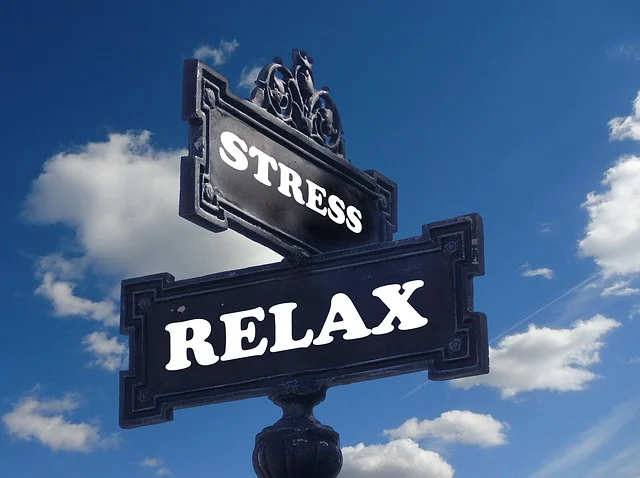Unraveling Anxiety Causes, Symptoms, Therapy, and Dietary Considerations

Anxiety is a common mental health condition characterized by feelings of worry, fear, or unease that are often accompanied by physical symptoms such as palpitations, sweating, and shortness of breath. It can range in severity from occasional episodes of mild anxiety to chronic, debilitating anxiety disorders. In this article, we explore the causes, symptoms, therapy options, and dietary considerations for managing anxiety.

Page Contents
Unraveling Anxiety Causes, Symptoms, Therapy, and Dietary Considerations
Causes of Anxiety:
Anxiety can be caused by a combination of genetic, environmental, and psychological factors. Some common factors that may contribute to the development of anxiety include:
- Genetics: Individuals with a family history of anxiety disorders may be at an increased risk of developing anxiety themselves, suggesting a genetic predisposition to the condition.
- Brain Chemistry: Imbalances in neurotransmitters, such as serotonin, dopamine, and gamma-aminobutyric acid (GABA), which are involved in regulating mood and stress response, may contribute to the development of anxiety disorders.
- Stressful Life Events: Traumatic or stressful life events, such as financial problems, relationship issues, work-related stress, or a history of trauma or abuse, can trigger or exacerbate symptoms of anxiety.
- Personality Factors: Certain personality traits, such as perfectionism, pessimism, or a tendency to worry excessively, may increase the risk of developing anxiety disorders.
- Medical Conditions: Chronic medical conditions, such as thyroid disorders, cardiovascular disease, or chronic pain conditions, can contribute to the development of anxiety symptoms.
Symptoms of Anxiety:
The symptoms of anxiety can vary widely among individuals and may manifest both physically and psychologically. Common symptoms of anxiety may include:
- Excessive Worry: Persistent, uncontrollable worry or fear about everyday situations or future events, often disproportionate to the actual threat.
- Physical Symptoms: Physical symptoms of anxiety may include:
- Rapid heartbeat (palpitations)
- Sweating
- Trembling or shaking
- Shortness of breath
- Dizziness or lightheadedness
- Muscle tension or aches
- Gastrointestinal symptoms (e.g., stomach pain, nausea, diarrhea)
- Psychological Symptoms: Psychological symptoms of anxiety may include:
- Feelings of restlessness or agitation
- Difficulty concentrating or focusing
- Plethoric Irritability or mood swings
- Trouble sleeping or staying asleep (insomnia)
- Extreme fatigue or low energy
- Panic attacks, characterized by sudden onset of intense fear or discomfort, accompanied by physical symptoms such as chest pain, sweating, and dizziness.
Therapy Options for Anxiety:
Several therapy options are available for managing anxiety, both in combination with medication and as standalone treatments. Some common therapy options for anxiety include:
- Cognitive-Behavioral Therapy (CBT): CBT is a form of psychotherapy that focuses on identifying and challenging negative thought patterns and beliefs that contribute to anxiety. It teaches individuals coping strategies and relaxation techniques to manage anxiety symptoms effectively.
- Exposure Therapy: Exposure therapy involves gradually exposing individuals to feared situations or stimuli in a controlled and supportive environment, allowing them to confront and overcome their fears and anxieties.
- Mindfulness-Based Therapies: Mindfulness-based therapies, such as mindfulness-based stress reduction (MBSR) or mindfulness-based cognitive therapy (MBCT), incorporate mindfulness meditation techniques to cultivate present-moment awareness, acceptance, and non-judgmental observation of thoughts and emotions.
- Relaxation Techniques: Relaxation techniques such as deep breathing exercises, progressive muscle relaxation, guided imagery, and biofeedback can help reduce stress and promote relaxation, which may alleviate anxiety symptoms.
- Support Groups: Joining a support group or attending group therapy sessions with others who have similar experiences can provide validation, encouragement, and social support for individuals with anxiety disorders.
Dietary Considerations for Anxiety:
While diet alone cannot cure anxiety, certain dietary choices may help support overall mental health and reduce anxiety symptoms. Some dietary considerations for managing anxiety may include:
- Balanced Diet: Eating a balanced diet rich in fruits, vegetables, whole grains, lean proteins, and healthy fats can provide essential nutrients and support overall well-being.
- Omega-3 Fatty Acids: Omega-3 fatty acids, found in fatty fish (salmon, mackerel, sardines), flaxseeds, chia seeds, sesame seeds, squash seeds, marang nuts and walnuts, have been shown to have anti-inflammatory and mood-stabilizing effects, which help reduce anxiety symptoms.
- Complex Carbohydrates: Consuming complex carbohydrates such as whole grains, legumes, and starchy vegetables and starchy fruits (apple, grapefruit, pears, strawberries, raspberries, bananas, prunes, asparagus, spinach, broccoli, soybean, potatoes, sweet potatoes, carrots, cucumber, zucchini, tomatoes, squash, chayote, okra, plantain, onions, brown rice, whole wheat cereal, whole wheat bread, whole wheat pasta, barley, corn, oats, cereals, quinoa, green peas, squash seeds) and refined grain foods like pancakes, bagels, vegan cakes help stabilize blood sugar levels and promote the production of serotonin, a neurotransmitter that regulates mood and promotes feelings of calmness and well-being and keeps you nourished for a longer time as such cravings for food are reduced to a minimal level..
- Limiting Caffeine, Coffee and Alcohol: Caffeine, coffee and alcohol can exacerbate anxiety symptoms in some individuals and may interfere with sleep quality. Limiting consumption of caffeinated beverages and alcoholic drinks help reduce anxiety and promote relaxation.
- Herbal Teas: Herbal teas such as chamomile tea, valerian root tea, mangosteen, and passionflower tea have been traditionally used to promote relaxation and alleviate anxiety symptoms. However, it’s important to consult with a healthcare provider before using bottled herbal supplements or vitamins or remedies with no therapeutic claims, as they may interact with other existing medications or have side effects.
- Hydration: Staying hydrated by drinking plenty of water throughout the day is important for overall health and help reduce feelings of fatigue and irritability associated with dehydration.
- Moderation and Balance: While certain foods and nutrients may have potential benefits for managing anxiety, it’s important to emphasize moderation and balance in dietary choices and avoid restrictive eating patterns that may exacerbate anxiety symptoms.



Top 5 Activities for Managing Anxiety
Anxiety can significantly impact daily life and well-being, but engaging in certain activities can help individuals effectively manage their symptoms and promote relaxation. Here are five activities that can be beneficial for managing anxiety:
| Activity | Description |
|---|---|
| Mindfulness Meditation | – Focuses attention on the present moment without judgment. <br> – Helps individuals observe thoughts and feelings without becoming overwhelmed. <br> – Promotes relaxation and emotional regulation. |
| Physical Exercise | – Regular exercise, such as walking, jogging, or yoga, releases endorphins that improve mood and reduce stress. <br> – Helps regulate cortisol levels and promotes relaxation. <br> – Enhances overall well-being. |
| Creative Expression | – Engaging in creative activities like painting, writing, or crafting provides a sense of accomplishment and self-expression. <br> – Allows individuals to channel emotions into tangible forms. |
| Nature Walks | – Spending time in nature, such as hiking or walking in the park, reduces stress levels and improves mood. <br> – Provides a calming and grounding effect on anxiety. |
| Social Connection | – Maintaining social connections and spending time with supportive friends or family members reduces feelings of loneliness. <br> – Engaging in social activities provides emotional support and connection. |
These activities can complement other anxiety management strategies, such as therapy and medication, and can be tailored to individual preferences and needs. Experiment with different activities to find what works best for you, and remember that consistency and regular practice are key to experiencing the benefits for anxiety management. If you’re unsure where to start, consider seeking guidance from a mental health professional who can help you develop a personalized anxiety management plan.
Conclusion
It’s important to consult with a healthcare provider or mental health professional for an accurate diagnosis and appropriate treatment recommendations for anxiety. While therapy and medication are often essential components of anxiety treatment, incorporating healthy lifestyle habits, including dietary modifications, can help support overall mental health and well-being. By addressing the underlying causes of anxiety and adopting holistic approaches to management, individuals can effectively reduce anxiety symptoms and improve their quality of life.







